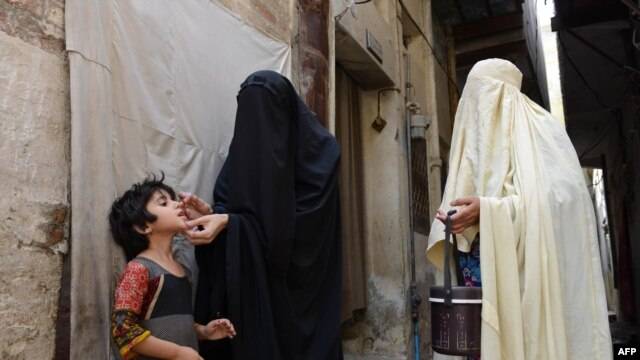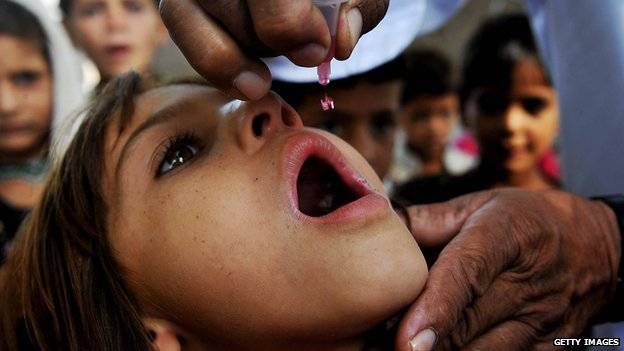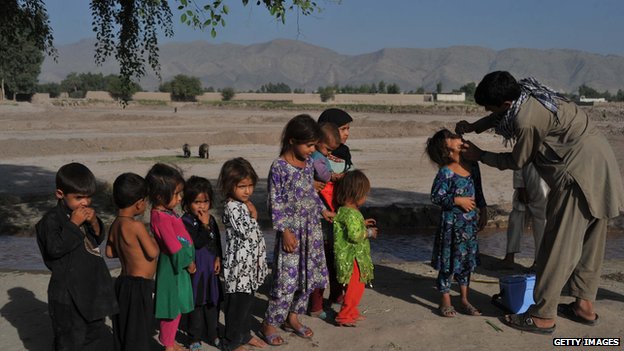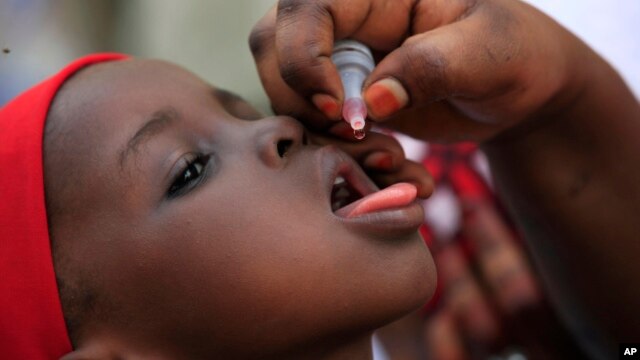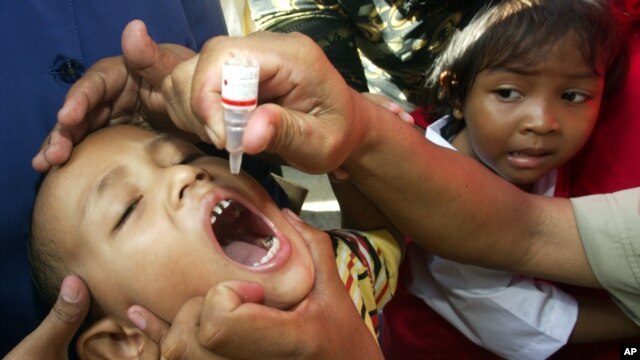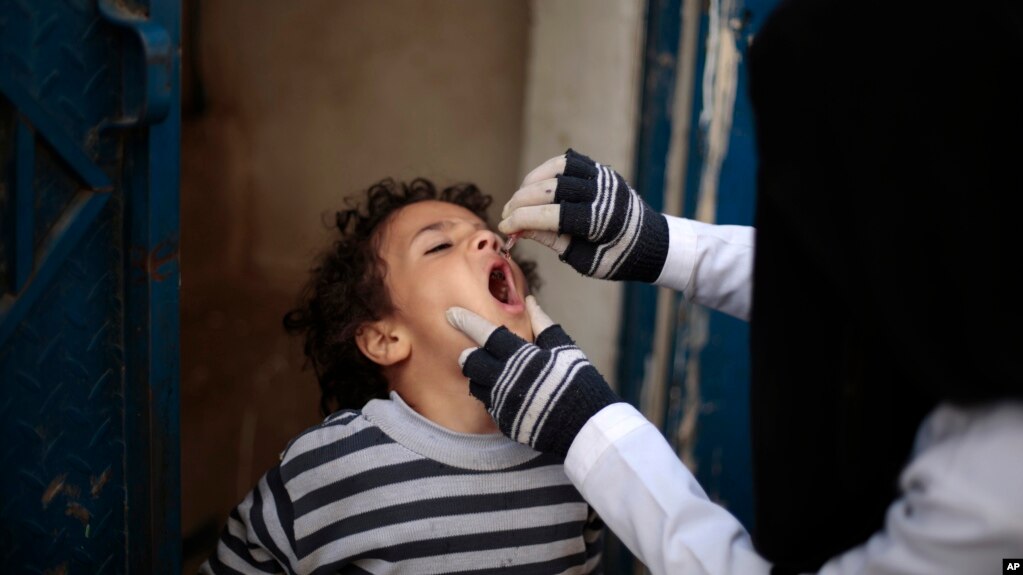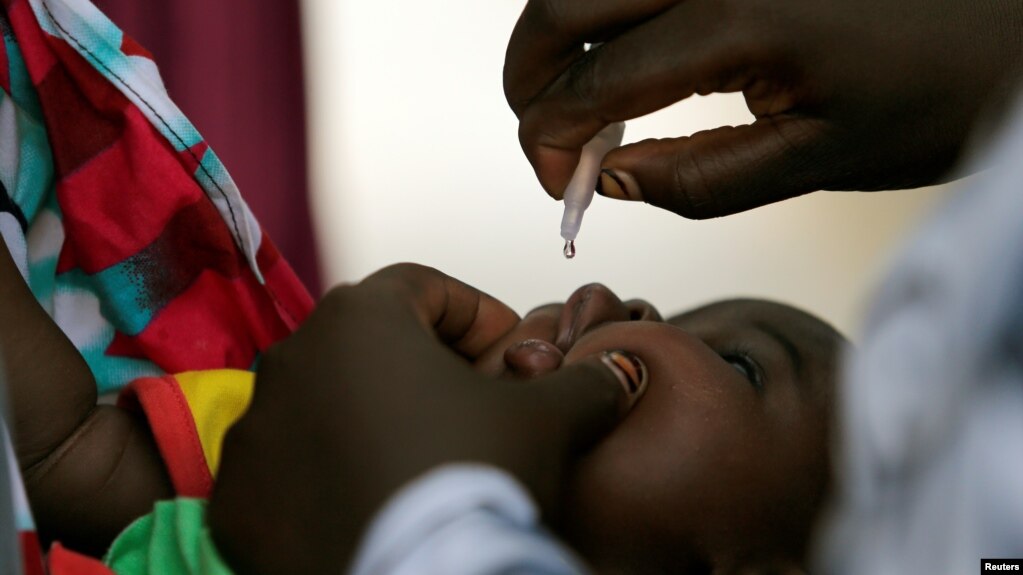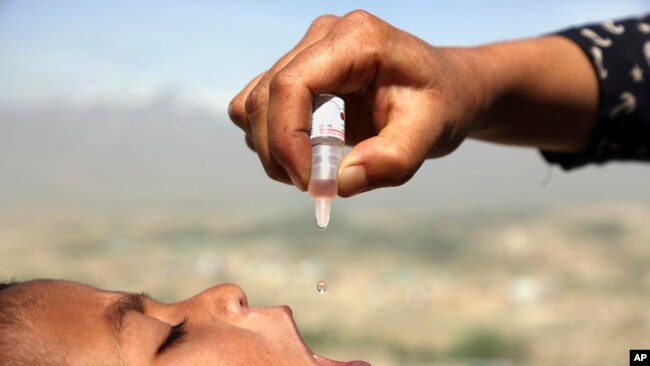Mutated virus caused lethal outbreak of polio in Africa...
Study Reveals Chink in Polio Vaccine’s Armor
August 18, 2014: A mutated polio virus that slipped through vaccine defenses caused an unusually lethal outbreak in the Republic of Congo in 2010, according to a new study.
Study Reveals Chink in Polio Vaccine’s Armor
August 18, 2014: A mutated polio virus that slipped through vaccine defenses caused an unusually lethal outbreak in the Republic of Congo in 2010, according to a new study.
An intensive vaccination campaign was able to stop the virus. But the authors say their research shows new and dangerous strains may emerge as polio eradication nears, and high rates of vaccination are the best available protection.
Weaker vaccine
Polio usually paralyzes its victims. It is not typically fatal. But in the Republic of Congo outbreak, nearly half of the 445 people who got sick with the virus died. Health workers were especially concerned because about half of the patients remembered having been vaccinated. “That made it even more bizarre, because if they had been vaccinated, they shouldn’t be sick,” said virologist Felix Drexler at the University of Bonn. When Drexler and colleagues in Europe and Africa studied the virus, they found it had some never-before-seen mutations in a critical part of its outer coat. Those mutations were in the place where antibodies that fight the virus would normally attach.
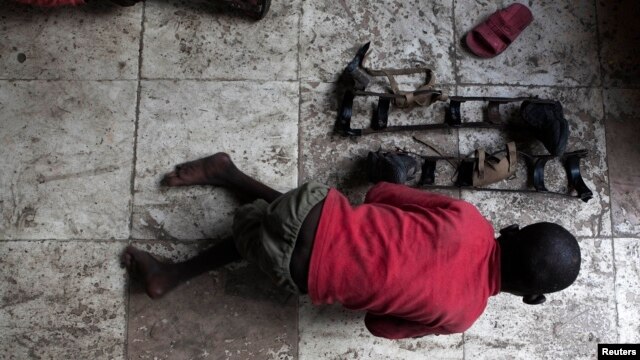
A boy suffering from polio crawls beside his braces in Kinshasa, capital of the Democratic Republic of the Congo
“We thought, ‘Wow, maybe that could affect the ability of the antibodies in human blood to neutralize the virus,’” Drexler said. It did. When they tested the virus in Germany against blood samples from people with better-than-average vaccination coverage, they found that 15 to 29 percent of them would not be protected from the mutant strain. The research is published in the Proceedings of the National Academy of Sciences.
Virus stopped
The Republic of Congo had been polio free before the outbreak. It took four nationwide immunization drives targeting every man, woman and child to stop the mutated virus. Drexler said the effort worked because just about everyone got vaccinated with the most potent form of the vaccine. The virus has not been seen since, though Drexler said it’s possible it’s still lurking out there somewhere. And, he added, there may be others that also can evade the vaccine's protection. Experts say polio eradication is in its final stages. There have been fewer than 150 cases anywhere in the world this year, and the virus is found regularly in just three countries.
Good enough?
But, Drexler noted, “The question that the experts are asking is, 'Is the vaccine good enough to enable us to eradicate poliovirus?'” Virologist Olen Kew with the U.S. Centers for Disease Control and Prevention says it is. He was not involved with this study. He noted that the vaccine has eliminated the virus everywhere it has been used. “What happened in Congo was, it hadn’t been used for quite a long period of time and a susceptible group opened up,” he said. Civil unrest disrupted vaccination campaigns in the 1990s and early 2000s. “And when the virus was introduced, it had devastating effects.”
Kew said the reason the virus was so deadly was because the susceptible group was young adults, not the children who are usually affected. “It’s been known for a long time that older age groups, once they get infected, can have more severe disease than younger children,” he said. Associate Director Walt Orenstein at the Emory Vaccine Center, who was also not involved in the study, said more potent vaccines would be helpful to protect against mutated viruses. However, he added, “I think the most important message, to me, is, we need to push hard and push fast and terminate transmission as quickly as possible, in which case this becomes irrelevant.”
Study Reveals Chink in Polio Vaccine’s Armor


